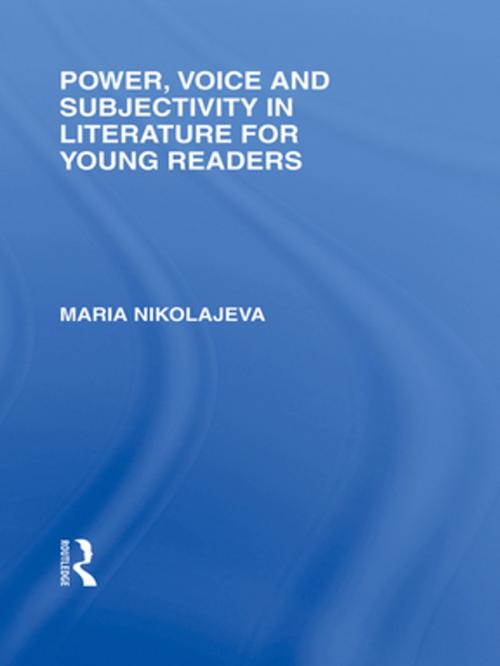Power, Voice and Subjectivity in Literature for Young Readers
Fiction & Literature, Literary Theory & Criticism, Children&, Books & Reading| Author: | Maria Nikolajeva | ISBN: | 9781135238223 |
| Publisher: | Taylor and Francis | Publication: | September 10, 2009 |
| Imprint: | Routledge | Language: | English |
| Author: | Maria Nikolajeva |
| ISBN: | 9781135238223 |
| Publisher: | Taylor and Francis |
| Publication: | September 10, 2009 |
| Imprint: | Routledge |
| Language: | English |
This book considers one of the most controversial aspects of children’s and young adult literature: its use as an instrument of power. Children in contemporary Western society are oppressed and powerless, yet they are allowed, in fiction written by adults for the enlightenment and enjoyment of children, to become strong, brave, rich, powerful, and independent -- on certain conditions and for a limited time. Though the best children’s literature offers readers the potential to challenge the authority of adults, many authors use artistic means such as the narrative voice and the subject position to manipulate the child reader. Looking at key works from the eighteenth century to the present, Nikolajeva explores topics such as genre, gender, crossvocalization, species, and picturebook images. Contemporary power theories including social and cultural studies, carnival theory, feminism, postcolonial and queer studies, and narratology are also considered, in order to demonstrate how a balance is maintained between the two opposite inherent goals of children’s literature: to empower and to educate the child.
This book considers one of the most controversial aspects of children’s and young adult literature: its use as an instrument of power. Children in contemporary Western society are oppressed and powerless, yet they are allowed, in fiction written by adults for the enlightenment and enjoyment of children, to become strong, brave, rich, powerful, and independent -- on certain conditions and for a limited time. Though the best children’s literature offers readers the potential to challenge the authority of adults, many authors use artistic means such as the narrative voice and the subject position to manipulate the child reader. Looking at key works from the eighteenth century to the present, Nikolajeva explores topics such as genre, gender, crossvocalization, species, and picturebook images. Contemporary power theories including social and cultural studies, carnival theory, feminism, postcolonial and queer studies, and narratology are also considered, in order to demonstrate how a balance is maintained between the two opposite inherent goals of children’s literature: to empower and to educate the child.















